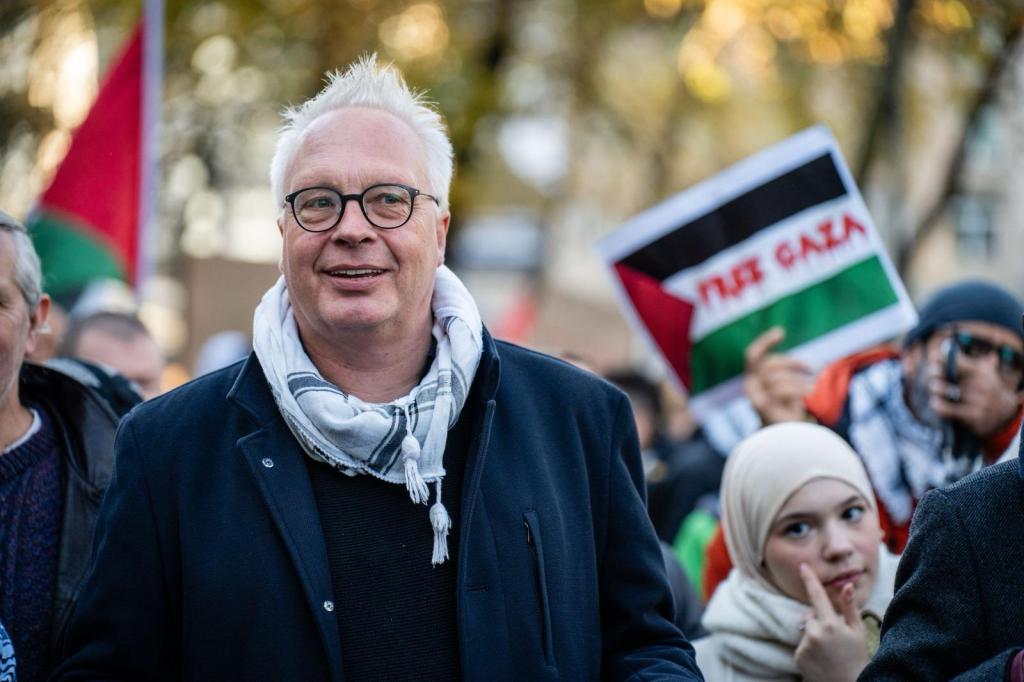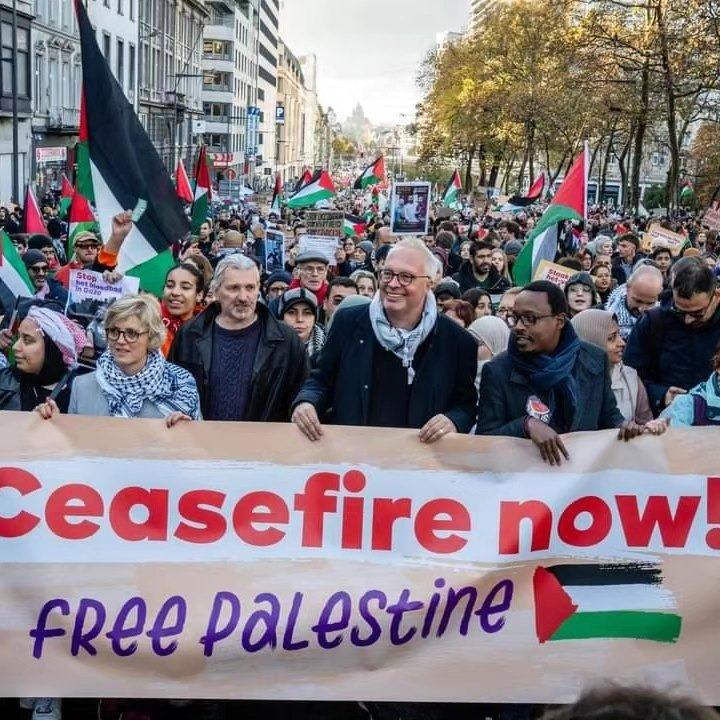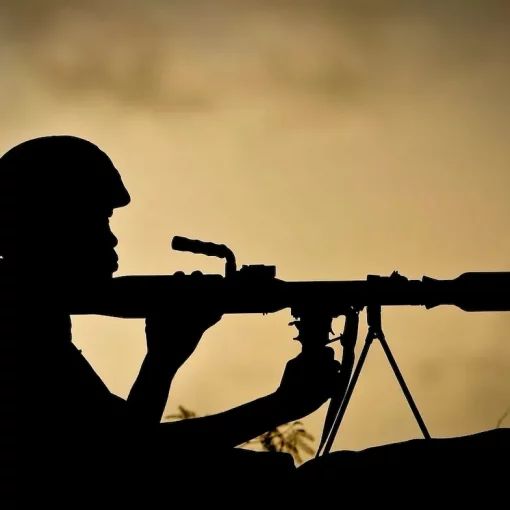
Peter Mertens is a Belgian MP and leader of the Workers’ Party of Belgium. He has authored numerous books, on the Euro, trade unions, fascism, class and capitalism. His latest book “Mutiny” is to now published in English. Liberation was particularly interested in the book’s analyses of popular struggles against imperialism and capitalism and, as one authoritative reviewer put it, “his compelling case for a joint mutiny of people in the North and the South” to promote “sovereignty, dialogue and cooperation rather than confrontation in international politics.
What motivated you to write Mutiny at this particular time, to whom is it directed, and why?
When I heard the story of Kath, a nurse from the Royal Berkshire Hospital, taking action for the first time in her life. Kath has been a nurse for thirty years and never thought about going on strike before. “It’s just not me,” she said. But that changed. There are stories at Kath’s hospital about people wearing two sweaters to save on heating or colleagues calling in sick because they can’t afford transportation to work. This changes something in Kath. She can’t just stand by anymore. She joins the strike for better pay. By the end of December 2022, half a million nurses are on strike. It’s the start of a historic social movement, on of summers and winters of discontent. There’s mutiny, also in the north of our planet. The class struggle ebbs and flows like the waves of the sea. But it’s definitely there.
Mutiny, much like all my previous books, is intended for as wide an audience as possible. I firmly believe that individuals are eager to comprehend how the world works. Understanding the underlying narrative of history is crucial, acknowledging that our world has been interconnected for centuries. Trade, maritime routes, and ports bind us together. Events in Indonesia or Bolivia hold significance for us in Belgium, just as developments here resonate with Brazil.
Why the title “Mutiny”?
While writing my book, I heard Fiona Hill speak, a former member of the U.S. National Security Council. Her response to the 127 countries that did not support the sanctions against Russia was: ‘this is mutiny’. Apparently, it is considered mutiny when countries no longer follow Washington. That resonated with me. If that’s mutiny, let’s embrace it. As a sobriquet, with a bit of a rebellious character.
Mutiny for me is also a metaphor, a symbol of disobeying the established order. This image carries a long maritime history, with mutiny representing various forms of collective resistance. From singing together below deck, to petitions and work refusal, to sabotage and the overtaking of the ship. It was not all calm on the water, quite the contrary, resistance was more common than not. Mutiny occurred in one in ten slave ships.
Today too, there is mutiny, both in the north and south. Look at the biggest social protest in human history in India, where peasants and workers mobilized together. Or how large popular movements from Bolivia to Chile, lead to the first democratic reforms in Latin America. In the north, the class struggle ebbs and flows like the waves of the sea. But it exists, and it fights against the same world order, the same monopolies, the same system of exploitation.
Since you wrote Mutiny, a series of horrendous events has unfolded in the Middle East, with the blatant disregard of the Israeli government for international law and the complicity of the US, EU and UK. Were you able to include these events in the French, English and Spanish editions of your book?
In my book, I discuss five watershed moments that left Washington vulnerable and pushed an increasing number of countries in the South to seek an alternative. Just think of the illegal war in Iraq in 2003, the global financial crisis of 2008, and the Ukraine war of 2022. Israel’s terrible war of destruction against Palestine is without a doubt a sixth, decisive tipping point. This war rips off the emperor’s clothes. The axis of war fuelled by Washington is resorting to extreme violence and still believes that it is above all laws.
But that same axis is more isolated than ever. The double standards and hypocrisy are being exposed all over the world. After Russia invaded Ukraine, it immediately faced swift economic and military sanctions. However, Israel remains untouched by such measures. The EU’s Association Agreement with Israel still grants full access to European resources, while the US supplies weapons used in Gaza.
From Jakarta to Brussels, London to Johannesburg, Istanbul to Washington, a new generation is standing up to put pressure and achieve peace and justice for Palestine. Millions are taking to the streets for peace, bread and justice. This offers perspective.
What does the history of US – China relations tell us about the potential for fair and respectful trading relationships in the Pacific region and across the world?
Since the 1973 oil crisis, the United States lost much of its manufacturing industry, shifting focus to the financial sector, while China emerged as the world’s factory. Washington wants to put an end to that today, through protectionism and an escalating trade war, branding China as a “systemic rival.”
This has major implications for a world in the midst of a large-scale energy transition. Those transitions always tend to disrupt social order: that was the case with coal in the 18th and 19th centuries, with oil in the 20th century, and it is today with the transition to a fossil-free economy. It triggered a race for precious resources like lithium, cobalt and nickel, and led to the development of major infrastructure projects for wind and solar parks, hydrogen pools and new transportation routes. Meanwhile, a digital upheaval is driving rapid development in machine learning, artificial intelligence, data and data protection, hardware accelerators, 5G and 6G communications networks, and the semiconductors needed to do it all. The growing rivalry with China plays a role in every aspect of this transition.
The White House views the conflict with China as a zero-sum game, requiring choosing sides. They’re playing with fire. Bloc thinking, which reduces the world economy to two large rival blocs, does not benefit the planet. Countries with large economies have a responsibility to respect other countries and treat them as equals. Large countries should be the first to base their relations with other countries on dialogue and partnership rather than confrontation or opportunistic alliance politics.

The peoples of the global south are looking to achieve political, economic and social justice in their differing circumstances, but their governments are not in all cases capable or willing to come up with alternatives. You speak about a “double mutiny” to describe this tension. What do you mean by this?
Those who might expect the ten countries of BRICS-plus to share a common leftist agenda will indeed be disappointed. However, that doesn’t mean we should suddenly lose interest in this renewed southern cooperation. Within the global south, mutiny has a twofold character.
On the one hand, grass-roots movements try to impose a progressive agenda, from the bottom up. They each do so in their own context: there is the movement for landless farmers, MST in Brazil, the great women’s movement AIDWA in India, and the struggle of the metal workers’ union NUMSA in South Africa. That’s the mutiny below deck. And it calls loudly for democratic rights, land reform, and well-paid labor. It’s this yearning for freedom against reactionary and dictatorial regimes that deserves our support.
But there is also the mutiny on the upper deck, at the level of states. They are looking for a new form of non-alignment, away from the unipolar world under the yoke of Washington, the IMF, and the World Bank. The BRICS countries have established their own investment bank. Countries can now, when they want to take out a new loan, choose not to turn to the IMF anymore but to the BRICS bank. This is a game changer in neo-colonial world relations, and one many metropolises in the West did not see coming.
What are the prospects for world peace and what can the peoples of both the global south and global north do together to secure it?
We are living in a polarizing world that can tilt in all directions. The monsters are never far away. But you see how people, both in the north and the south of the planet, come together, organize, and rise up. For simple things: a decent income, a healthy meal, a roof over their heads, affordable energy. My call: if we can let the mutiny of the north shake hands with the mutiny of the south, and vice versa, we can tilt the world in the democratic, social, and ecological direction that this planet needs. Capitalism is not the future, socialism 2.0 is.
This is an edited version of an article first appeared in Liberation Journal
Support our work – donate, become a member, affiliate your local organisation’s branch or volunteer
The views expressed in the articles published on this website do not necessarily represent those of Liberation
The book is now available from LeftWord books. https://mayday.leftword.com/mutiny.html




